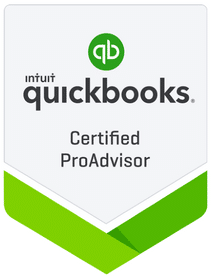- Patrick Roney
- (877) 503-8607
Follow Us :
Follow Us :
Proledge
September 20, 2013

We recently discussed knowing when it’s time to turn over your bookkeeping services to an in-house or outsourced bookkeeping expert and the ways to keep costs low and processes efficient. It’s now important to discuss what your role as a small business owner should be in the same light – after all, keeping costs down and processes efficient is a two-way street.
As a small business owner you’ve likely outsourced your bookkeeping for one of the following reasons:
Whether you fit into one of the above categories or have a different reason altogether for outsourcing your bookkeeping needs, it’s important to remember that you shouldn’t disappear completely from the bookkeeping process. It’s imperative you remain in the picture to provide direction and feedback.
Just as you have the vision of your perfect bookkeeper, we bookkeepers have a vision of our perfect “client boss”.
The best-case symbiotic relationship would consist of the client boss having the following traits:
Not every business owner can be a bookkeepers dream, but the point is, the better understanding of accounting and QuickBooks you have, the more efficient your relationship with your bookkeeper will be. This type of relationship saves both time and money.
Have no fear, if you know nothing about QuickBooks or accounting and just need something to hand off to your CPA at the end of the year, your outsourced bookkeeper can take care of everything, but know your costs will likely be 10-20% higher. Why, you might ask?
There are tedious little questions that will need to be answered by someone (e.g. how to structure the chart of account, what to capitalize, how to treat certain sales tax items, etc.). Uncovering these details can be a time consuming process – more time means more money. If you cannot answer these questions, your bookkeeper will need to do one of two things:
There’s no right or wrong way – it is what it is. Being aware of your role in the bookkeeping process is important to creating a relationship of trust and efficiency. Both your knowledge of bookkeeping and your level of involvement in the bookkeeping process directly affects the bottom line. Knowing that going into the relationship with your bookkeeper can help you avoid pitfalls and stay in control. It can also assist you in identifying your proper level of involvement in the process.
At ProLedge our Account Managers have experience working with a variety of business owners with a lot and a little knowledge of the bookkeeping process. It is our mission to tailor-create a system that works for everyone in the most efficient and economical way possible. Reflect on your experience and level of interest in the bookkeeping process and have an open conversation with your bookkeeper. Transparency is the first step in creating a relationship that will provide you with peace of mind and balanced books.


Fill out the form below to sign up to our Blog Newsletter and we’ll drop you a line when new articles come up.
Bookkeepers.
Professional. Affordable.
ProLedge is a bookkeeping services firm.
Copyright © 2024 All rights reserved.
Hello. Can we help you?